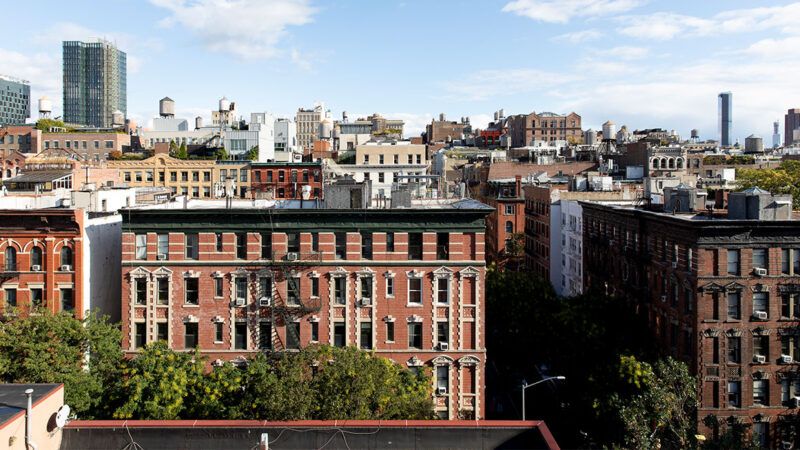Rent Control 2.0 Looks a Lot Like Rent Control 1.0
Rent control is getting a rhetorical makeover from progressive policy makers.

Once considered the best example of a policy that undermined itself, rent control recently has received a rhetorical makeover from progressive policy makers. They claim smartly designed laws against "rent gouging" can prevent tenant displacement without constraining housing supply or quality, proven consequences of old-fashioned rent control. The trick, they say, is setting a relatively generous cap on rent hikes, exempting new construction, and allowing landlords to raise rents as they please on vacant units.
Rent control 2.0 strikes "the right balance between protecting tenants from egregious rent increases [and] providing landlords with the ability to make a fair rate of return," then–California Assemblymember David Chiu (D–San Francisco) said in 2019, when the Golden State was preparing to follow Oregon's lead by passing the nation's second-ever statewide rent control law.
Just four years later, legislators in California and Oregon are considering legislation that would turn rent control 2.0 back into the more familiar version. That development is a reminder that the rent control ratchet moves in just one direction.
In California, Sen. Maria Elena Durazo (D–Los Angeles) has introduced a bill that would reduce the state's allowable rent hike, currently the lesser of 10 percent or inflation, to the lesser of 5 percent or inflation. The "right balance" Chiu endorsed in 2019 apparently was not the right kind of right.
Oregon legislators, meanwhile, are considering a bill that would lower the state's current rent cap of 7 percent plus inflation to the lesser of 10 percent or 5 percent plus inflation. The state's existing cap gives landlords a lot of flexibility to raise rents in response to rising inflation, which proponents said would not constrain the housing supply. But after several years of high inflation, activists and lawmakers are demanding a stricter standard.
The story in New York is similar. In 2019, the state legislature tightened and expanded a longstanding rent stabilization ordinance covering nearly 1 million apartments in New York City. Now lawmakers have proposed a "good cause eviction" bill that would let tenants challenge any rent increase in court. Rent increases of 3 percent or more would be considered presumptively unreasonable.
Once you concede that the government should regulate rent increases, it's only a matter of time before "smart" rent control policies give way to less thoughtful ones.
